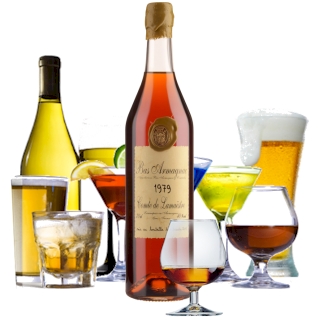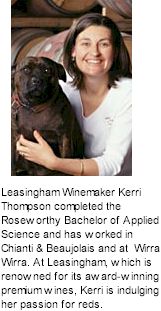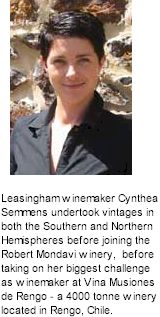


At around 400 metres elevation the Clare Valley is characterised by cool night time temperatures and warm days. In 1893 a group of South Australian entrepreneurs founded The Stanley Wine Company to produce high quality Clare Valley red and white wines. Subsequent generations of wine drinkers and wine judges have applauded their decision and confirmed their hopes.

Originally there were four pioneers J.H. (Joseph) Knappstein a merchant, Dr O. Wein-Smith a medical practitioner, soliciter Magnus Badger, and John Cristion, who was a brewer of note. Alfred Basedow was employed as General Manager and Winemaker, having learned his craft in Europe. The name Stanley was chosen to identify the company with the local electoral district of Stanley.
The first vintage, in 1895, was a mere 11,356 litres. In 1896 cellars were constructed and each year improvements were made until 1903 when the vintage yielded 378,540 litres of wine. This represented the crush of most of the grapes grown in the Clare Valley district. By 1912, Joseph Knappstein, one of the most enterprising men of his time in South Australia, had bought out the interests of the other three founders and gained control of the company. Since that time the Knappstein family has been associated with the activities of the company.
In 1971 the H.J. Heinz Corporation, based in Pittsburgh, Pennsylvania, purchased a controlling interest. The Knappstein family retained key positions in the company and held shares until 1976. In 1984 the Heinz company purchased the Buronga winery in Mildura, New South Wales. The production of Stanley wine casks was transferred from the Leasingham Clare Valley winery to Buronga, which is closer to the supply of fruit for cask wines. The Leasingham operation was then free to concentrate on the production of premium wines.

The Leasingham wineworks was acquired by The Hardy Wine Company in January 1988, when a major upgrade of vineyards, winery, tourism and promotional facilities was begun. Subsequently that year, the Clarevale Co-operative was integrated giving access to further premium fruit. Today the name Leasingham is reserved for premium wines only - the Stanley name continues on a range of wine casks produced at the Buronga winery.
The Clare Valley has gained a reputation for producing some of Australia's finest premium wines, in particular Riesling and Shiraz. The region's early reputation was based around the production of Australia's finest Rieslings, but in more recent times the reds have excelled. The contemporary Australian palate for reds is perfectly suited to the region's growing conditions, which translates into big rich generous styles that are so much in demand.
Each vintage some 5,000 tonnes of grapes, from local growers and from the estate's own vineyards, are crushed at the Leasingham wineworks. Demand for Leasingham's wines has exceeded supply and the winery has undergone capacity expansion into new vineyards. Fruit for the famous label is can now be sourced from some of the Clare Valley's most skilled and deicated grape growers.
Leasingham's wines have enjoyed considerable success in recent times winning many accolades at national and international wine shows. The most notable being the 1995 Jimmy Watson Trophy won by the 1994 Leasingham Classic Clare Shiraz at the 1995 Royal Melbourne Wine Show. This was the first Jimmy Watson Trophy ever won by a Clare Valley wine.
